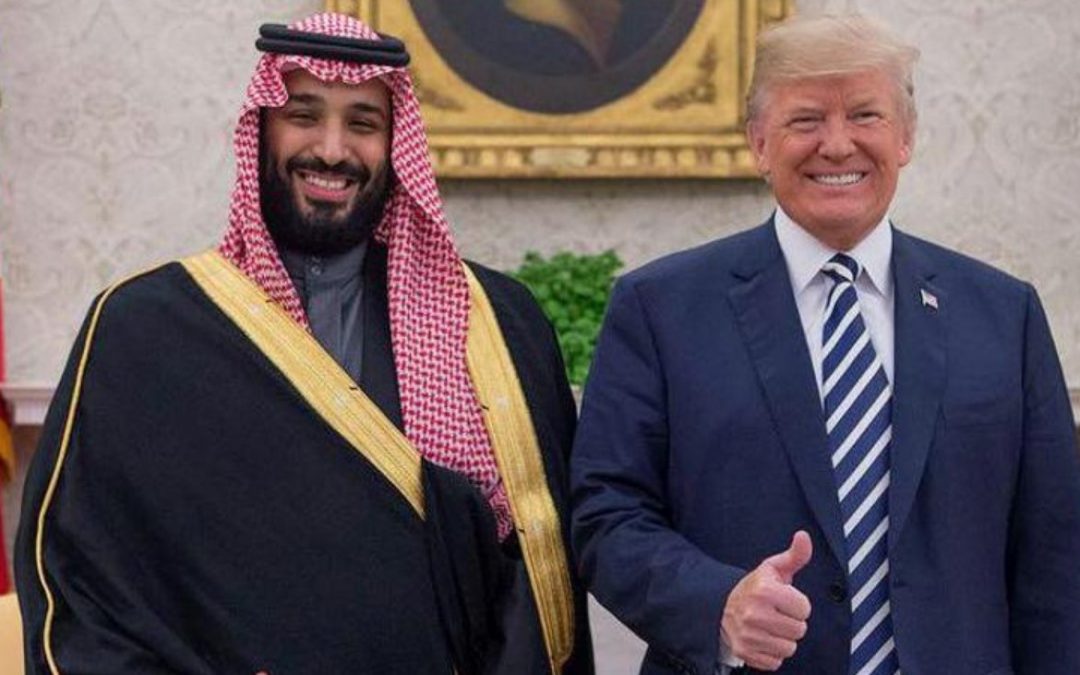The Senate voted to block the sale of billions of dollars of munitions to Saudi Arabia and the United Arab Emirates on today, in a sharp and bipartisan rebuke of the Trump administration’s attempt to circumvent Congress to allow the exports by declaring an emergency over Iran.
In three back-to-back votes, Republicans joined Democrats to register their growing anger with the administration’s use of emergency power to cut lawmakers out of national security decisions, as well as the White House’s unflagging support for the Saudis despite congressional pressure to punish Crown Prince Mohammed bin Salman after the killing in October of the journalist Jamal Khashoggi.
A United Nations report released Wednesday made the most authoritative case to date that responsibility for the killing and its cover-up lies at the highest levels of the Saudi royal court.
No other foreign policy issue has created as large a rift between President Trump and Congress, and the vote to block the arms sales deepens the divide.
It is the second time in just a few months that members of Trump’s party have publicly opposed his foreign policy, with both the House and Senate approving bipartisan legislation this spring to cut off military assistance to Saudi Arabia’s war in Yemen using the 1973 War Powers Act, only to see it vetoed.
While the Democrat-controlled House is also expected to block the sales, Trump has pledged to veto the legislation, and it is unlikely that either chamber could muster enough support to override the president’s veto.
[Trump’s Ties To Saudi Arabia Questioned]
Seven Republicans — not nearly enough to override a veto — broke from their party to disapprove of the sales to Saudi Arabia: Senator Susan Collins of Maine, Senator Lindsey Graham of South Carolina, Senator Mike Lee of Utah, Senator Jerry Moran of Kansas, Senator Lisa Murkowski of Alaska, Senator Rand Paul of Kentucky and Senator Todd Young of Indiana.
“This vote is a vote for the powers of this institution to be able to continue to have a say on one of the most critical elements of U.S. foreign policy and national security,” said Senator Robert Menendez of New Jersey, the top Democrat on the Foreign Relations Committee and lead sponsor of the resolutions of disapproval. “To not let that be undermined by some false emergency and to preserve that institutional right, regardless of who sits in the White House.”
The White House announced the sales late last month, and invoked an emergency provision in the Arms Export Control Act to allow American companies to sell $8.1 billion worth of munitions in 22 pending transfers to the three Arab nations.
Saudi Arabia and the United Arab Emirates are waging an air war in Yemen that has come under sharp criticism from Congress and human rights organizations.
Members of Congress from both parties have been holding up arms sales from American companies to Persian Gulf nations and trying to end American military support for the Saudi-led coalition that is fighting Houthi rebels in Yemen, which has resulted in what the United Nations calls the world’s worst man-made humanitarian disaster.
By declaring an emergency over Iran, the administration was able to override those holds.
Trump has defended Saudi Arabia, in part because he’s done millions of dollars worth of business there.
Son-in-law Jared Kushner also has a massive amount of business dealings in Saudi Arabia.
Trump registered eight companies during his presidential campaign that were tied to hotel interests in that country.
The companies were registered under names such as THC Jeddah Hotel and DT Jeddah Technical Services, according to financial disclosure filings.
During a rally in 2015, the day Trump created four of those companies, he said he gets along well with Saudi Arabia.
“They buy apartments from me. They spend $40 million, $50 million. Am I supposed to dislike them? I like them very much.”
After his election, Trump said on Fox News he “would want to protect Saudi Arabia.”
